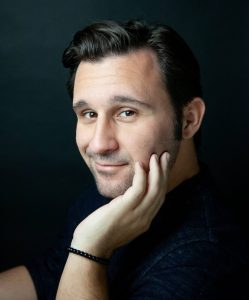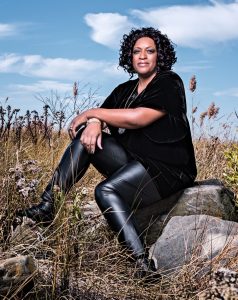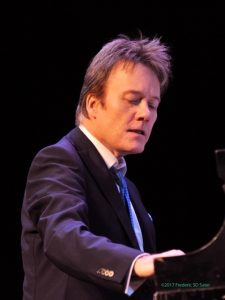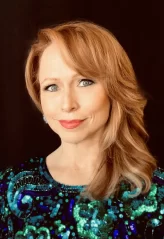“Does This Song Look Good on Me?”—Four Singers Discuss Their Approaches to Repertoire
It’s one of the central issues that cabaret and jazz performers face throughout their careers: How do you best go about picking material to sing?
And that initial query prompts several related questions:
–How do you decide if and when a song is right for you to perform?
–How do you know when you’ve outgrown a song, when your audience has outgrown it, or when it’s simply the time to delete it from your setlist?
–Should you stick with material that rests within your comfort zone, or should you branch out into genres that will surprise your listeners, perhaps raising an eyebrow or two?
–Is it important to have X number of songs in your repertoire—ones you can bring to the microphone at any given moment without glancing down at lyrics on your cell phone or tablet?
Recently, I asked four performers (all Bistro Award recipients) of considerably different backgrounds—Nicolas King, Shirley Crabbe, Eric Comstock, and Karen Oberlin—about the ways they deal with repertoire as the years go by. What follows are some of their thoughts and anecdotes on this essential aspect of a singer’s life.
Nicolas King: “A Personal Connection Is the Key”
“Songs are like relationships, I think,” says Nicolas King. “Some stay in your life forever, and some fizzle out after a certain amount of time if they’re not good for you.”
Though he is still a young man, King draws wisdom from a deep well of show-business experience. After all, this is a guy who had three Broadway credits on his résumé before age 12. He was an opening act for Liza Minnelli between 2002 and 2012. His 2017 recording On Another Note (recorded with his beloved collaborator, the late pianist and arranger Mike Renzi) attracted Grammy consideration. With such a rich background, working from such a tender age, King understands, in a way perhaps few other singers do, the ways in which song repertoire grows and evolves over the years.
Deciding what to sing was simpler for King early on:
“I grew up in a musical family, so I just sang the songs I heard around the house. Mainly songs that my grandmother, Angela Bacari, sang in her shows. She would put together medleys from karaoke tracks and I would sing those. I sang whatever I wanted as a small kid, but as I got older and approached my teens, age-appropriate material was more carefully considered. No one wants to hear a 13-year-old sing ‘Lush Life.’”
In those early-teen years, King began refining his own musical taste. His sensibility is rooted in established standards from the American Songbook, but King has not limited himself to older songs. He’s sung such numbers as the Britney Spears pop favorite “…Baby One More Time” and the alt-rock favorite “All I Want,” albeit with approaches that fit his own performance style.
Although he can be game for musical challenges, he’ll seriously consider songs only if he is sure he can effectively deliver them. “Once I’ve determined it’s a good story to tell, I’ll sit down at the piano and decide how I want to tell the story musically.”
He loves the process of finding a way into a song and making it his own, and he’s created many arrangements himself in recent years—”with the genius aid of people like Mike Renzi and Tedd Firth.”
Some songs have been dependable standbys for King’s sets, including “Mr. Paganini” (Sam Coslow), “Johnny One Note” (Rodgers & Hart), and “Can’t Take My Eyes Off You” (Bob Crew, Bob Gaudio). All these songs have Renzi arrangements. For his rendition of “Can’t Take My Eyes…” listen here.
King avoids songs that feel “forced or untrue” or ones for which he feels no personal connection. For instance, he has vowed never to sing the Sinatra anthem “My Way,” noting that he doesn’t connect to “a single note or idea of that song.” (That “My Way” has recently been repurposed as a jingle for a colorectal cancer–screening test seems unlikely to change King’s mind about the selection.)
I asked whether anyone has ever talked him into a song that he didn’t want to perform.
“Only once, to my recollection. Liza Minnelli was directing my act at the time and wanted me to sing ‘The Money Tree,’ a song written for her by Kander & Ebb for The Act. I loved the drive and melody of it, but I really didn’t connect to the lyrics. I’m a huge Fred Ebb fan, but I never felt that was his best work. I conceded, because it’s hard to say no to Liza, and despite my annoyance [with] the song, it truly stopped the show. She was absolutely right—the audience loved it. I still don’t care for it, but I’ll throw it in the set occasionally, and it always garners a huge response.”
He believes it’s unfair to test new material in front of a paying audience, so he’ll prepare a song, determine during a sound check what shape it’s in, and then make the decision whether to sing it or hold back. “An audience doesn’t pay a cover to hear you rehearse….” he says.
He keeps a list on his iPhone of songs he hopes to perform down the road. Among titles currently on the roster are Stephen Sondheim’s “Losing My Mind” and “How Do You Keep the Music Playing” (Michel Legrand, Marilyn and Alan Bergman).
“I feel like the only thing holding me back is timing. I believe that when the timing is right and I know I can deliver the lyrics from an honest place, I will do it.”
Nicolas King will appear with Seth Sikes (and Billy Stritch) in their New Belters show at The Ice Palace in Cherry Grove, NY, on August 10.
Shirley Crabbe: Material with Substance
A jazz singer with a background in operatic arias and art songs, Shirley Crabbe searches for musical material with substance. She feels that a lot of pop titles—and some widely known jazz songs—tend to be “lightweight.”
She points to a selection she sang early in her jazz career: “All of Me,” by Gerald Marks and Seymour Simmons.
“You can go deep with it, but it’s not complex. You know exactly what you’re getting, from the moment that you get it. I like songs that have some nuance to them, or—especially—songs that tell a story directly, leading you from point A to point B.”
A song like “The Windmills of Your Mind” (Michel Legrand, Marilyn and Alan Bergman) fits the bill for Crabbe. Although it doesn’t have a clear narrative line, it does, she notes, “describe the feeling of going through an experience…[telling] the story like our memories do: in bits and pieces.” Listen to her take on “Windmills…” here.
Crabbe tends to look to a song’s lyric before its melody. And if a song has both lyrical eloquence and an attractive melodic arc, she’s likely to want to snag it. She has great love for Hoagy Carmichael and Johnny Mercer’s “Skylark,” describing it as lyrically simple yet rich, and with a beautiful melody. At one point, she realized she was including this song in every set she performed. She decided to omit it from some shows, simply to give her regular listeners a break.
Her transition from classical to jazz repertoire has had bumps along the way, especially when pop music somehow became part of the equation:
“At one point I was working with a band that expected me to know a lot of pop music. In all honesty, I really wasn’t interested. I just wanted to sing my jazz repertoire…. And I liked songs that weren’t necessarily Marvin Gaye and Aretha Franklin. I didn’t feel those were songs that sounded good in my voice. It bothered me to have to sing them and do what I felt was not a great job…. There was definitely an expectation that I know these songs. And I got a few dirty looks because I didn’t know a few tunes.”
On another occasion, she performed her jazz set and then took a request to sing “The Way We Were.” Knowing the popular movie theme worked well for her voice, she sang it, and the crowd approved—vociferously. But she was a little peeved by the experience:
“I thought, ‘I just sang a whole bunch of jazz, and you want me to sing Barbra Streisand? Did I totally blow this, totally not make it happen?”
Jazz singers and musicians, she notes, are expected to have a substantial number of songs they can perform with ease at any moment. When collaborators first gather to perform together, it’s important that they discover which titles all parties have in common, in order to improvise smoothly and come up with a viable set.
When Crabbe is on the hunt for new material, she often turns to the repertoire of two artists who share a given name: Carmen McRae and Carmen Lundy. Dianne Reeves is another inspiration, as is Ethel Waters, about whom Crabbe created a tribute show.
She draws a distinction between songs she has learned and songs she performs.
“I learned this from training classically. You sing a song. You learn it. But there’s a lot of stuff you learn that you don’t sing right away. You [say]: ‘OK, we’ll put that away…sing that in another 10 years.’ And then you come back, and it’s all there. The voice is there, and you know what to do with it.”
Crabbe is methodical about the song-learning process. A simple list of titles she hopes or plans to sing isn’t enough. Rather, she keeps a looseleaf binder in which she stores charts for songs in separate compartments, depending on where she is with them in the refinement process. This helps her organize practice schedules. Once she’s mastered a particular number, she transfers the pages to her regular setlist. When I spoke with her, she had 10 or 12 songs in these compartments, at various stages of readiness.
Shirley Crabbe will next appear at Jazz in the Garden at Edward Hopper House Museum in Nyack, NY, FREE, on August 17. For more gig updates: https://bnds.us/2sk3uq
Eric Comstock: “The Key Is to Personalize, Not Cover”
The first time I heard singer-pianist Eric Comstock present a full evening of music was also my very first visit to Pangea in the East Village several years ago. I remember being impressed by his affability and rapport with his listeners and also the ease with which he was able to honor song requests from audience members. Songs well known and songs obscure—Comstock seemed to bring them all to his lips effortlessly, with poise and polish.
I mentioned this evening to him recently, and he recalled it with fondness.
“I feel very lucky to have a very good memory for lyrics, and, as a record collector also, I’ve heard many different renditions of the standards, so they’re in my brain. These songs are my passion, after all, and I get a particular kick out of locating alternate lyrics that surprise people. The gig at Pangea was fun and freewheeling, and I was happy to take requests on the fly. At Birdland, where I work with Barbara Fasano and [bassist] Sean Smith on Saturday nights, I do a more formal set that changes every week, and I’ll sometimes need a lyric sheet. I still welcome requests, but I ask for 48 hours’ notice.”
Comstock notes that there are selections he sang early in his career that he has removed from the roster. (“Yes. There are cutie-pie…songs I sang as a young pup that wouldn’t look good on me now.”) But his devotion to the repertoire of the American Songbook—as well as to a similar tradition of songs from Britain, Brazil, and continental Europe—has remained constant.
“Standards such as ‘The Way You Look Tonight’ [Jerome Kern, Dorothy Fields] and ‘They Can’t Take That Away from Me’ [George and Ira Gershwin] never get old, and I feel singing them is not only rewarding to me but also warms an audience up…. I also try always to do a humorous song. Even if it’s esoteric, an audience is so eager to laugh.”
Of course, there are only so many standards to go around. Sometimes Comstock puts new twists on familiar material to shake things up a tad:
“In a world of great ballads, there can never be enough rhythm songs in a nightclub set, so I’ve altered arrangements to swing more…. The opposite is also true: I sometimes slow down an up-tempo song so that people will hear it anew.”
The aforementioned Barbara Fasano is Comstock’s wife, an accomplished singer in her own right. The two never deliberately set out to work as a team, but they soon noticed that when booking for out-of-town engagements, people would request them as a duo. Early in their marriage, the shows they performed together were often salutes to songwriters: Jule Styne, Charles Strouse, Burton Lane. So the repertoire for those engagements was intrinsically limited.
Listen to and watch a Comstock/Fasano medley of two songs from the Lee Adams/Charles Strouse musical Golden Boy: “I Wanna Be with You” and “Lorna’s Here,” performed at Jazz at Lincoln Center.
In other shows, there’s been more room for innovation. Fasano—whom Comstock credits as one of the first vocalists to sing Cole Porter and Bruce Springsteen in the same set—helped him feel more comfortable with the idea of performing songs from the post-1950s singer-songwriter tradition: titles from such artists as Bob Dylan, Carole King, Laura Nyro, and Billy Joel. Multiple titles from this more recent genre will appear later this year, on a forthcoming album from the pair. But whether it’s Irving Berlin or Jimmy Webb, audiences need to hear a familiar song with fresh ears.
“The key to that genre is to personalize, not to cover,” Comstock says of singer-songwriter repertoire.
He credits Fasano for being a reliable sounding board when he’s trying out new material of any stripe.
“Barbara is definitely someone I can trust to direct me when I’m unsure about a song or how—or whether—to perform it. Having watched her direct and coach other people, I know she’ll tell me the truth.”
There are also occasions on the Birdland stage when he feels so comfortable that he’ll try out new material during the show.
“It usually goes well!” he adds.
In addition to their regular Birdland shows (Saturdays, 5:30 pm), Eric Comstock and Barbara Fasano will perform at Music Mountain in Falls Village, CT on July 22 and at United Theatre in Westerly, RI, on August 19.
Karen Oberlin: Theme Focused
Coming from a theatre background, Karen Oberlin takes an approach to repertoire that tends to prioritize “show” over “song.” When she plans a new evening of cabaret—whether it’s a conceptual program like Birds Do It: Songs Inspired by the Natural World or one of her many tribute shows (Randy Newman, Doris Day, Frank Loesser)—she customarily starts with a basic thematic idea, one she can commit to early on. The main thing she needs after that is an “anchor” song (or two or three): material she knows she’ll definitely want to perform. Then she begins a deep-dive search for other selections that fit the theme and the occasion.
For instance, for her show Confound Me: Songs in Search or Something, the primary anchor number was “Confound Me,” written by Oberlin’s husband, David Hajdu, along with Renee Rosnes. The show she envisioned was to be about “living without having all the answers—being open to the mysteries of life.” Soon she latched on to “Night Song” (Lee Adams, Charles Strouse) from Golden Boy, a number that captured the excitement of “not knowing what the night is going to hold—or who we may hold.” Other theme-appropriate songs were then dropped into the mix, filling in the program’s setlist.
The approach has worked well for Oberlin but, in at least one case, she has encountered sticking points. Her Doris Day show—Secret Love: The Music of Doris Day—is now her most successful and most performed piece. But in the beginning, she hesitated to even commit to the project, because she was reluctant to sing Day’s signature song, “Que Sera, Sera (Whatever Will Be, Will Be)” (Jay Livingston, Ray Evans).
“I thought, ‘How can we do that song? Doris Day hated it. How are we gonna make this work, without being sort of clunky and silly?”
On the other hand, she knew that some listeners would be disappointed if she omitted it. So, she worked with her frequent collaborator—music director, arranger, and pianist, Tedd Firth—to come up with a solution. She decided to sing the number as a jazz waltz with some unexpected modulations.
One thing that makes “Que Sera, Sera” seem monotonous is its lack of a musical bridge. Oberlin and Firth addressed that by inserting patter midway into the song: spoken word about how Day first came to perform the number, in Alfred Hitchcock’s film The Man Who Knew Too Much. When she later performed the show in London, Oberlin, aware of British music-hall traditions, added another variation. She had the audience sing along on the chorus. “They enjoy that, and it’s just a fun connecting moment….”
Listen to and watch here another selection that appeared in Oberlin’s Day show, a medley of Cole Porter’s “Night and Day” and “The Night We Called It a Day (Matt Dennis, Tom Adair). This song pairing had previously been heard at NYC’s Cabaret Convention. This clip is from Susie Mosher‘s The Lineup show at Birdland—Oberlin’s final pre-pandemic engagement.
Oberlin knows that performing songs one-off, for group shows, at benefits, or for off-the-cuff situations is not her strongest suit:
“I always wanted to be that person who has 200 songs, and a list of my keys and all the major [songs] I can do. I really admire people who broke into singing through that doorway: singing at events and being more flexible song-wise. But I don’t think I’ve ever been that. I think I’ve learned a lot of songs, but it’s usually been through…performing musical theatre or through the creation of my own shows.”
During the pandemic, however, she made a point of learning some songs she’d always wanted to sing—including such standards as “Imagination” (Jimmy Van Heusen, Johnny Burke), “Fools Rush In (Where Angels Fear to Tread)” (Rube Bloom, Johnny Mercer), “Moonlight in Vermont” (Karl Suessdorf, John Blackburn), and Shirley Crabbe’s beloved “Skylark.” She performed them in makeshift shows at parks and restaurants. She hopes that some of these numbers will find a home in more-formal future projects of hers.
She is proud to have experimented over the years with different musical genres. In a New York Times review years ago, critic Stephen Holden categorized her as a singer of soft jazz standards.
“He didn’t mean it as a negative. But I thought. ‘Wait. That’s not all I am.’”
She pushed back, and soon she was back on a cabaret stage with a program of songs by Elvis Costello, an artist whose music she’d always loved. Tedd Firth was not well versed in Costello’s body of work, but he grew to love it too, and he found cunning new ways to arrange the material. Oberlin notes that Firth now looks back on the Costello show as one his favorites of the many projects on which the two have collaborated.
She is currently thinking about revisiting several of her earlier shows, presenting them in performances spaced a month apart. She looks forward to resuscitating the material and seeing how her relationship with it has changed.
While her shows have often dictated the choice of her musical material, she feels songs should not be chosen only because they fit the right thematic criteria.
“You should sing what you’re going to be excited to sing, tell the…musical, lyrical story that you just can’t wait to get out there.”
Karen Oberlin takes her Elvis Costello show to the Pheasantry in London, June 23 and 24. In August, she’ll be back in NYC , performing with Marieann Meringolo at Chelsea Table + Stage.
###
About the Author
Mark Dundas Wood is an arts/entertainment journalist and dramaturg. He began writing reviews for BistroAwards.com in 2011. More recently he has contributed "Cabaret Setlist" articles about cabaret repertoire. Other reviews and articles have appeared in theaterscene.net and clydefitchreport.com, as well as in American Theatre and Back Stage. As a dramaturg, he has worked with New Professional Theatre and the New York Musical Theatre Festival. He is currently literary manager for Broad Horizons Theatre Company.








